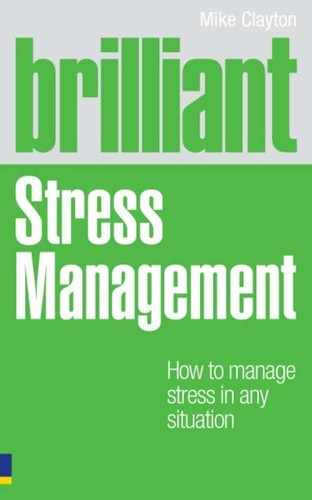136 brilliant stress management
Staff turnover increases
Productivity falls
Quality drops
Complaints increase
Gossip and rumours increase
Bad atmosphere/low morale
Poor relationships, disputes, conict
Dissension, insubordination, poor industrial relations
Bullying
Increased late working – with or without formal overtime
Accidents and near misses
You must deal with it
If you have any managerial responsibility – whether as a front-
line supervisor or all the way up to managing director or chief
executive – you must deal with stress as soon as you are aware of
it. If you are a member of staff, and are aware of stress in yourself
or a colleague, then please do let your supervisor or manager
know. You and your colleagues have a right to expect managers
to deal effectively with workplace stress. In the next section, we’ll
overview a manager’s responsibilities.
Your responsibility as a manager
Your general responsibility
Before we look at the legal situation, let’s assess what your
responsibilities are as a manager, and at what a good organisa-
tion can expect of the people it puts in charge of others.
Take stress seriously
Managers should consider the control of workplace stress as
a part of their core role. Actively look out for opportunities
to reduce stressors, and ways to give staff control over their
Manage stress at work 137
workplace and work practices. Constantly scan trends and
observe your colleagues for signs of stress. Act on any signs
swiftly, showing staff that you are doing something positive, and
engage them in designing solutions.
Treat staff fairly and consistently
Create a workplace where stressors are kept to a minimum and
staff are able to deal with them effectively to control their own
stress levels. Important features of this are two-way commu-
nication with your staff group, and with each individual, and
looking for opportunities for exibility in working conditions
and timings, to allow staff members more personal control.
Give staff the training and support they need and allow them to
personalise their work space and to do things their own way (of
course, complying with mandatory requirements and processes).
Do not tolerate any forms of bullying or harassment from col-
leagues, customers or suppliers.
Think carefully about your own management practices
Examine the way you interact with staff to discover whether
the way you do things increases or decreases stress levels
around you. You may feel able to ask for feedback – either
from staff or from trusted colleagues who can observe the way
you deal with team members. Always be prepared to make
changes.
The law
The law around the workplace is complex, different in each
country, and beyond the scope of this book. However, in the
UK and many countries, there is a mesh of principal legislation
aimed at protecting people at work, general legislation that is
relevant to people at work, and case law.
In the UK, the most important legislation is contained within the
Health and Safety at Work Act 1974 and Management of Health
..................Content has been hidden....................
You can't read the all page of ebook, please click here login for view all page.
